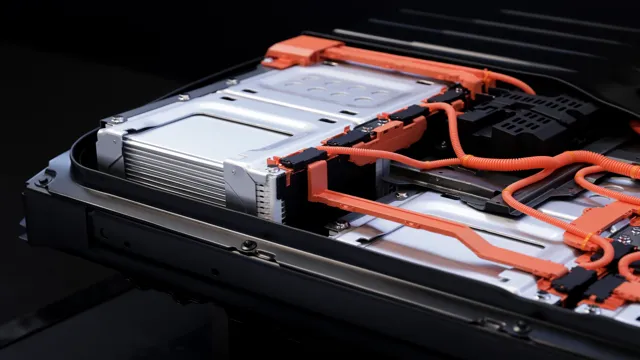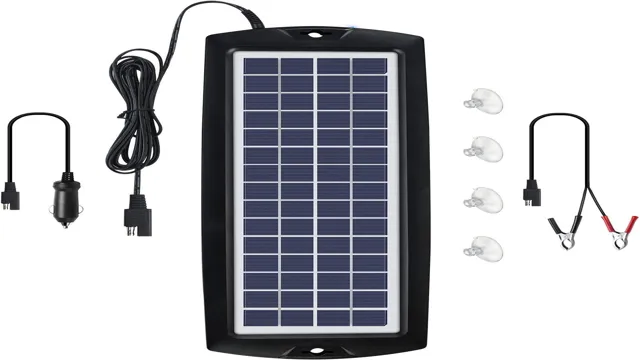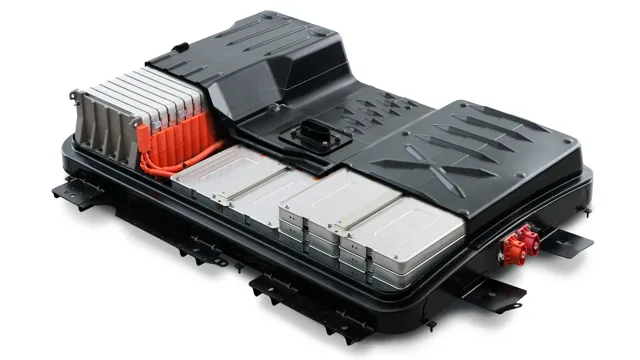Uncovering the Truth: Debunking the Myth that All Electric Car Batteries are the Same
Electric vehicles are becoming more and more popular as people look for ways to reduce their carbon footprint and save money on gas. However, with this rise in popularity comes a lot of confusion. One of the most common questions people have is whether all EV batteries are the same.
After all, there are so many different models and brands of electric cars, so it’s only natural to wonder if the batteries inside them are interchangeable. In this blog post, we’ll explore the answer to this question in detail, looking at the variations between different types of batteries, what factors determine their quality, and whether it’s possible to switch batteries between different electric car models. So, if you’re considering buying an electric vehicle or just curious about the inner workings of these cars, read on to learn everything you need to know about EV batteries.
Introduction
Many people wonder if all electric car batteries are the same. The short answer is no. While all electric car batteries serve the same purpose, they differ in size, weight, performance, and chemistry.
Electric car batteries come in different sizes depending on the car model and manufacturer. For instance, the battery of a Tesla Model S is much larger and more powerful than a Nissan Leaf battery. Electric car batteries also differ in weight with some batteries weighing upwards of 1000 pounds.
Performance-wise, the range an electric car can travel on a single charge depends on the battery’s capacity. Lastly, electric car batteries are made from different chemistries. Some batteries, like those found in the Tesla Model S, use lithium-ion cells, while other manufacturers use nickel-cadmium or nickel-metal hydride batteries.
Therefore, different electric car batteries have different charging times, energy densities, and safety risks.
Explaining the Differences in Electric Vehicle Batteries
Electric vehicle batteries come in many different forms and technologies. Each type comes with its pros and cons, and as a result, they have different use cases. Understanding the differences in electric vehicle batteries can help you make an informed decision when purchasing an electric car.
In this blog post, we will explore the different types of batteries used in electric vehicles and their advantages and disadvantages. Whether you are a car enthusiast or someone who is new to electric vehicles, this post will be informative and enlightening. So, let’s dive in and explore the world of electric vehicle batteries!

Comparing Battery Capacity and Range
When it comes to comparing battery capacity and range, there are a number of considerations to keep in mind. First and foremost, it’s important to understand that battery capacity refers to the overall amount of energy that a battery can store, while range refers to the distance that a vehicle can travel on a single charge. While these two concepts are related, they are not the same thing, and it’s important to consider both when evaluating different battery options.
Factors like the size and weight of the battery, as well as the efficiency of the motor or engine it powers, can all have an impact on both capacity and range. Ultimately, the right choice will depend on a variety of factors, including your specific needs and preferences, as well as the type of vehicle you’re looking to power.
Types of EV Batteries
Are all electric car batteries the same? The answer is no. There are different types of batteries used in electric vehicles, with varying chemistries and compositions. The two most common types of EV batteries are lithium-ion and nickel-metal hydride.
Lithium-ion batteries are favored for their high energy density and long life, making them ideal for electric vehicles. They are also used in many consumer electronics, from smartphones to laptops. Nickel-metal hydride batteries are less expensive and have been used in hybrid electric vehicles for many years.
However, they are gradually being phased out in favor of lithium-ion batteries due to their lower energy density and shorter lifespan. Some EV manufacturers, such as Tesla, have developed their own proprietary battery chemistries, which they claim offer superior performance and durability. Ultimately, the type of battery used in an electric vehicle depends on factors such as cost, performance, and safety.
Lithium-Ion Batteries
Lithium-ion batteries are the most popular batteries used in electric vehicles (EVs). However, not all lithium-ion batteries are the same. There are several types of lithium-ion batteries, including nickel-cobalt-aluminum oxide (NCA), lithium-iron-phosphate (LFP), and nickel-manganese cobalt oxide (NCM).
Each of these batteries has different strengths and weaknesses, which makes them suitable for different types of EVs. NCA batteries have a high energy density, making them ideal for long-range EVs, but they are also more susceptible to overheating. LFP batteries have a longer lifespan and are less likely to catch fire, but they have lower energy density.
NCM batteries strike a balance between NCA and LFP batteries, offering a good compromise between energy density and safety. In the end, the type of lithium-ion battery used in an EV depends on the automobile manufacturer’s preference and the intended purpose of the vehicle.
Solid State Batteries
When it comes to electric vehicle (EV) batteries, there are several types available. One of the most innovative options is the solid-state battery. These batteries use a solid electrolyte instead of the typical liquid or gel material found in traditional lithium-ion batteries.
This leads to several advantages, including a longer lifespan, faster charging times, and improved safety. Since there is no liquid material inside, there is less risk of leakage or fire. Plus, the solid-state design enables the battery to hold more energy in the same amount of space.
Although this technology is still in the early stages, it shows a lot of promise in the EV industry. As companies continue to research and perfect solid-state batteries, we may see them become more prevalent in the market in the near future.
Nickel Metal Hydride Batteries
Nickel metal hydride batteries, or NiMH batteries, have been a popular choice for EVs in the past. They offer a higher energy density than lead-acid batteries and are less expensive than lithium-ion batteries. However, they do have some drawbacks.
NiMH batteries are heavier and larger than lithium-ion batteries, which can be problematic for EVs where weight and space are critical factors. They also have a shorter lifespan and lower efficiency compared to their lithium-ion counterparts, meaning they need to be replaced more frequently and may not provide as much range per charge. Despite these limitations, NiMH batteries remain a viable option for EVs, especially for those looking for a more affordable alternative to lithium-ion batteries.
Factors that Affect Battery Life
Are all electric car batteries the same? The short answer is no. There are several factors that affect the battery life of an electric car, including the type of battery, its capacity, and how it is used. Lithium-ion batteries are the most common type of battery used in electric vehicles, but the specific chemistry of the battery and its capacity can vary greatly.
Additionally, how the battery is used and maintained can also greatly impact its lifespan. Driving habits, charging habits, and exposure to extreme temperatures can all affect the battery’s overall performance. So, while all electric car batteries may share some similarities, they are not all the same and require proper care and maintenance to ensure they perform optimally and have a long lifespan.
Temperature
When it comes to battery life, temperature plays a significant role in determining how long your device can run. High temperatures accelerate battery degradation, whereas low temperatures can cause temporary dips in battery performance. This is because batteries rely on chemical reactions to generate power, and temperature can affect the rate at which these reactions occur.
Extremely hot temperatures can cause irreversible damage to the battery’s internal components, shortening its lifespan and reducing its capacity. On the other hand, freezing temperatures can cause the battery to discharge more rapidly, reducing the amount of time it can power your device. So, it’s important to store your devices in a moderate temperature range and avoid exposing them to extreme temperatures, whether it’s hot or cold.
By taking care of your battery’s temperature needs, you can extend its lifespan and ensure that your device remains functional for longer periods.
Charging Habits
When it comes to your phone’s battery life, there are several factors that can affect its longevity. One of the most important habits to consider is how you charge your device. Charging your phone overnight or using a cheap, unofficial charger can damage your battery over time.
It’s best to charge your phone in short bursts, and to avoid letting it drain completely before charging it again. Additionally, keeping your phone cool while it charges can help extend its battery life. Avoid leaving it in direct sunlight or using it while it’s plugged in, as this can cause it to overheat.
By paying attention to your charging habits and taking a few simple precautions, you can help ensure that your phone’s battery lasts as long as possible.
Conclusion
In conclusion, asking if all electric car batteries are the same is a bit like asking if all beverages are the same just because they come in a bottle. Sure, they may have some similarities, but the devil is in the details. From the size and weight to the range and charge time, there are a plethora of factors that differentiate one electric car battery from another.
So, let’s put that question to bed and instead focus on the exciting developments happening in the electric car world, like longer ranges and faster charging times. Cheers to the electrifying future!”
FAQs
What are the different types of electric car batteries?
There are several types of electric car batteries, including Lithium-Ion, Nickel-Metal Hydride, and Lead-Acid batteries.
Which type of electric car battery is the most commonly used?
Lithium-Ion batteries are the most commonly used electric car batteries because they are lightweight, have high energy density, and longer lifespan.
Do all electric car batteries have the same range?
No, the range of an electric car battery depends on factors such as the type of battery, its capacity, and the vehicle’s overall efficiency.
Can you replace an electric car battery?
Yes, electric car batteries can be replaced, but it can be expensive. It’s advisable to replace the battery after its lifespan has ended.







